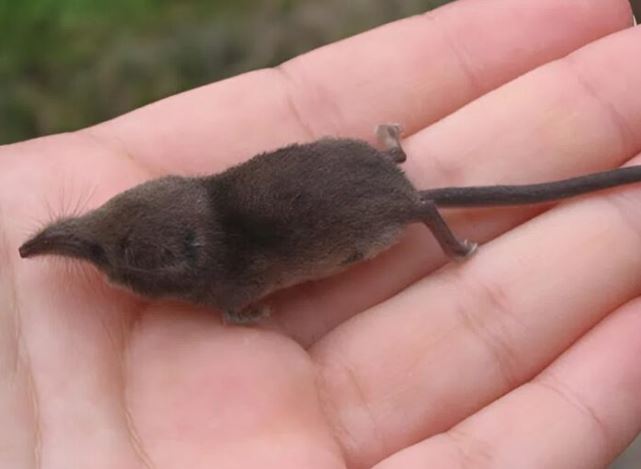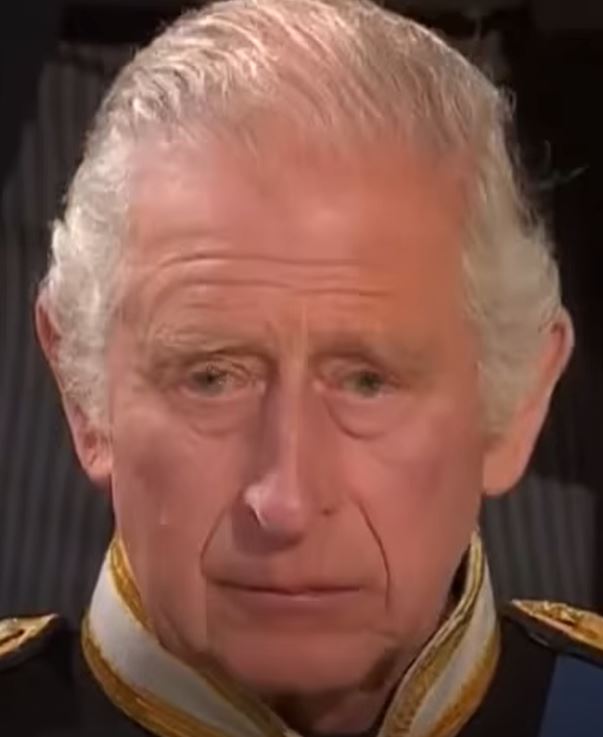A Simple Act of Kindness: How One Father Rediscovered Legacy, Family, and Community
A Bottle of Water and a Legacy Reclaimed
Adam Rivers had devoted over a decade of his life to the same warehouse job. It wasn’t glamorous or celebrated, but it provided a steady paycheck and a modest, reliable rhythm for him and his ten-year-old daughter, Lily. The warehouse smelled of cardboard and motor oil, the fluorescent lights flickered intermittently, and the concrete floors echoed beneath heavy boots. It was a world of order and repetition, and Adam knew every aisle, every shelf, every creaking corner.
On an early Thursday morning, as he methodically stacked boxes and checked shipments, he noticed something unusual in the farthest corner of the warehouse. A figure slouched against a stack of crates. Adam froze. The man wore a worn leather jacket, now torn and scuffed, and the collar was stained dark with dried blood. One eye was swollen shut, a faint bruise darkening the cheek beneath it. Despite his injuries, he carried a quiet dignity, as if he refused to bow to misfortune.
Adam’s eyes darted toward the security cameras. By some stroke of fortune, the angle of the nearest camera did not capture this corner. He felt the weight of a choice: ignore the man, follow the rules, maintain the routine—or step outside protocol and act.
Adam grabbed a water bottle from his lunch bag and carefully approached. He handed it to the man, whose trembling hands accepted it without a word. They shared a brief, silent connection, forty seconds of unspoken understanding. Then, almost as quietly as he had appeared, the man slipped away into the pre-dawn shadows.
For a few days, life continued as usual—or at least, as usual as it could be in Adam’s world. But the ripple effects of that small act of kindness soon hit him in ways he could never have anticipated. One afternoon, his manager, Todd Coleman, approached, flanked by two stern security personnel.
“You were seen on footage assisting an intruder,” Todd said, his voice clipped and indifferent. “That violates company policy. You are terminated effective immediately.”
Adam tried to explain, voice tight with disbelief. “I gave a man water. He was hurt. That’s all.”
Todd shook his head. “Policy is policy.”
Escorted from the building without acknowledgment, Adam felt a hollow emptiness. That evening, sitting on the curb outside the warehouse, he stared at the expanse of asphalt stretching before him. The wind cut sharply, tugging at his jacket. When he told Lily, her response was simple and profound: “It’s okay, Daddy. You’re still my hero.”
Her words clung to him, a fragile but unshakable thread of hope in the midst of uncertainty.
A few nights later, while bills sat stacked on their kitchen table and shadows stretched across the walls of their modest apartment, Adam heard the distant growl of engines. The sound began faintly but quickly grew louder until the very street outside seemed to vibrate with its force. Forty motorcycles rolled into view, lined up neatly along the curb, chrome glinting under the early morning sun. Adam froze instinctively, shielding Lily behind him.
One familiar face emerged from the crowd—the man he had helped, now healed, bruises gone, his posture proud and upright. He stepped aside to reveal a tall man with silver-streaked hair and a neatly trimmed beard, wearing a leather vest. His voice carried a calm authority.
“You helped one of ours,” the man said.
Adam swallowed hard. “I only gave him water.”
“No one does that anymore,” the man replied, pressing a gleaming silver key into Adam’s hand. “Come with us. There’s more to this story.”
Lily peeked cautiously from behind her father. “Are you superheroes?” she asked. The man smiled gently. “No, kid. Just people who remember what kindness means.”
They led Adam and Lily to a waiting van. Inside rested a motorcycle, a Harley-Davidson restored to near perfection, matte black with red trim and polished until it shone. The silver-bearded man spoke again, his voice tinged with reverence.
“This bike belonged to your father, Rusty Rivers. He rode with us in the 1980s. He was a good man—always helped others without expecting anything in return. Died too young. This is your inheritance, not just of metal and mechanics, but of legacy.”
He handed Adam an old photo: Rusty Rivers, grease-stained and smiling, alongside Ridge—the man Adam had helped. Adam’s eyes lingered on the photo, tracing the resemblance and recognizing the connection bridging decades.
The gift wasn’t merely material. It was a second chance. A pathway to rediscover purpose. The convoy guided Adam to an old garage, freshly painted and organized, bearing the sign Rivers Customs. His father’s name emblazoned above the doorway was like a beacon of belonging.
At first, Adam hesitated. He had neither experience nor funds, and the weight of starting anew felt monumental. Ridge shook his head kindly. “Your father taught many of us. Now we teach you. The knowledge is here; the will is yours.”
Day by day, Adam immersed himself in the work. He learned to tighten chains, repair engines, and restore bikes with meticulous care. But the transformation went beyond machinery. He began repairing his own life, mending the gaps left by lost opportunities and the quiet despair of routine existence. Lily contributed as well, sketching designs that were proudly displayed in the garage. The shop gradually became a place of community, not just commerce.
Word spread quickly. Neighbors, then visitors from other towns, came to see the mechanic who had dared to act with compassion. Stories circulated about the single father who rebuilt his life while nurturing those around him. Local media covered the story, followed by national outlets, celebrating the revival of a garage built on kindness rather than competition.
Through the months, the shop flourished not only because of skilled workmanship but because of its heart. Homeless teenagers found mentorship and employment. Riders seeking a second chance discovered a welcoming environment. Lily became more than a helper; she became a symbol of continuity, her name painted alongside her father’s, her drawings brightening the walls.
One Christmas Eve, the familiar roar of engines returned, forty motorcycles filling the street with the scent of gasoline and camaraderie. But this time, the attention was on Lily. The bikers presented her with a custom pink leather jacket, gold embroidery stitching her name across the back, and a matching helmet glittering like flames. Ridge knelt, his voice soft and earnest.
“You’re family now, Little Rivers.”
Adam stood back, overwhelmed with gratitude and disbelief. What had begun as a simple act—a bottle of water, a moment of empathy—had blossomed into something immeasurable: belonging, purpose, and a reclaimed legacy. The spirit of Rusty Rivers lived on in every repaired bike, every gesture of kindness, and every rumble of engines that now symbolized loyalty rather than threat.
When asked later how it all began, Adam’s answer was always the same.
“I didn’t do anything extraordinary. I didn’t set out to change the world. I just didn’t look away.”
And, in that steadfast refusal to ignore someone in need, he had sparked a transformation that reached far beyond himself, touching lives in ways he never could have imagined.
Over time, Rivers Customs became more than a garage—it became a cornerstone of the community. The stories of those it helped spread, inspiring countless others to act with compassion and courage. Adam and Lily learned that small acts could ignite a chain reaction of hope, proving that kindness, however simple, had the power to reshape destinies.
In the hum of engines, the shine of chrome, and the laughter echoing across the garage, Adam Rivers had discovered the extraordinary in the ordinary. He had found his father’s legacy, yes—but he had also found his own, written in grease, steel, and the hearts of those around him.
And it all began with one moment, one bottle of water, and the courage to look.


